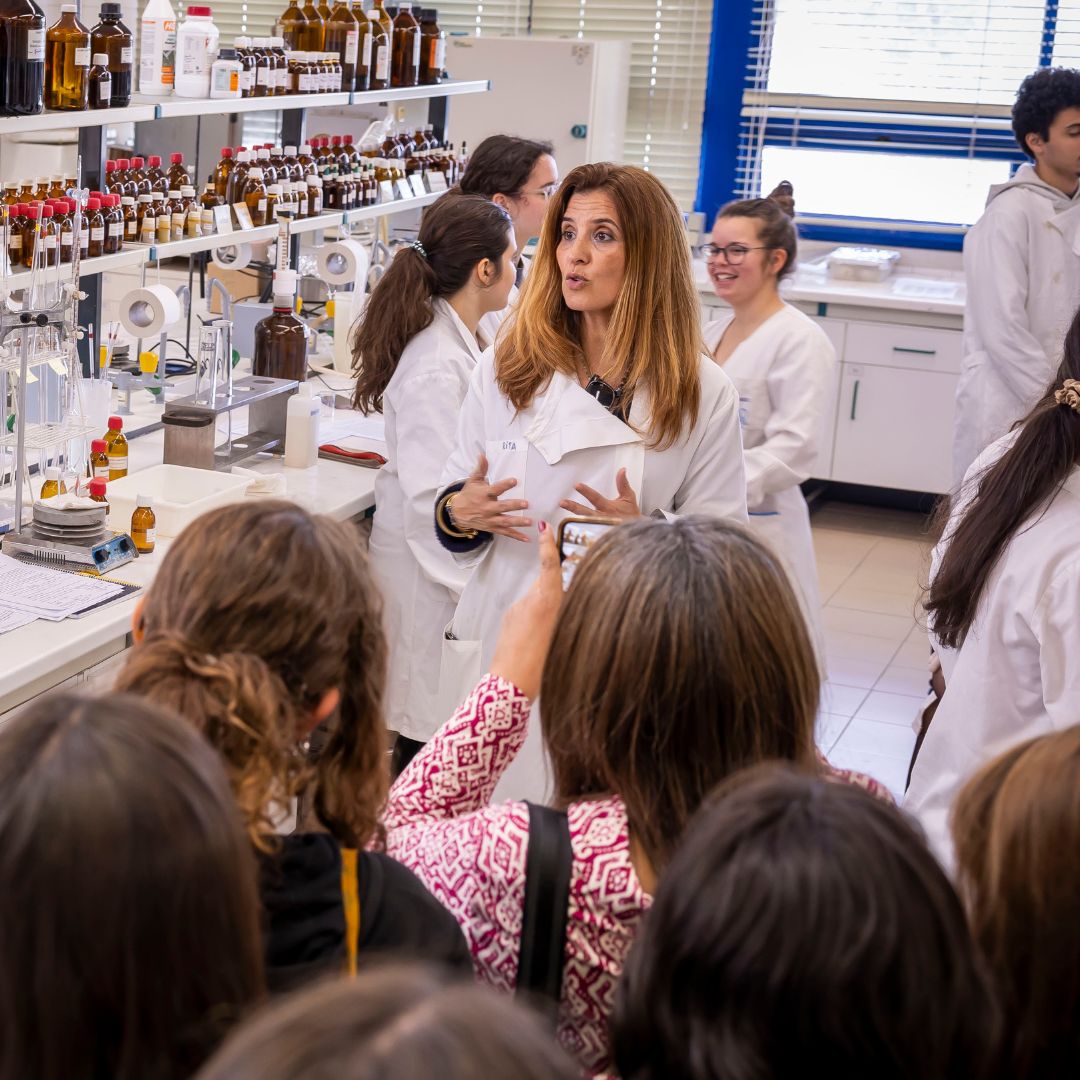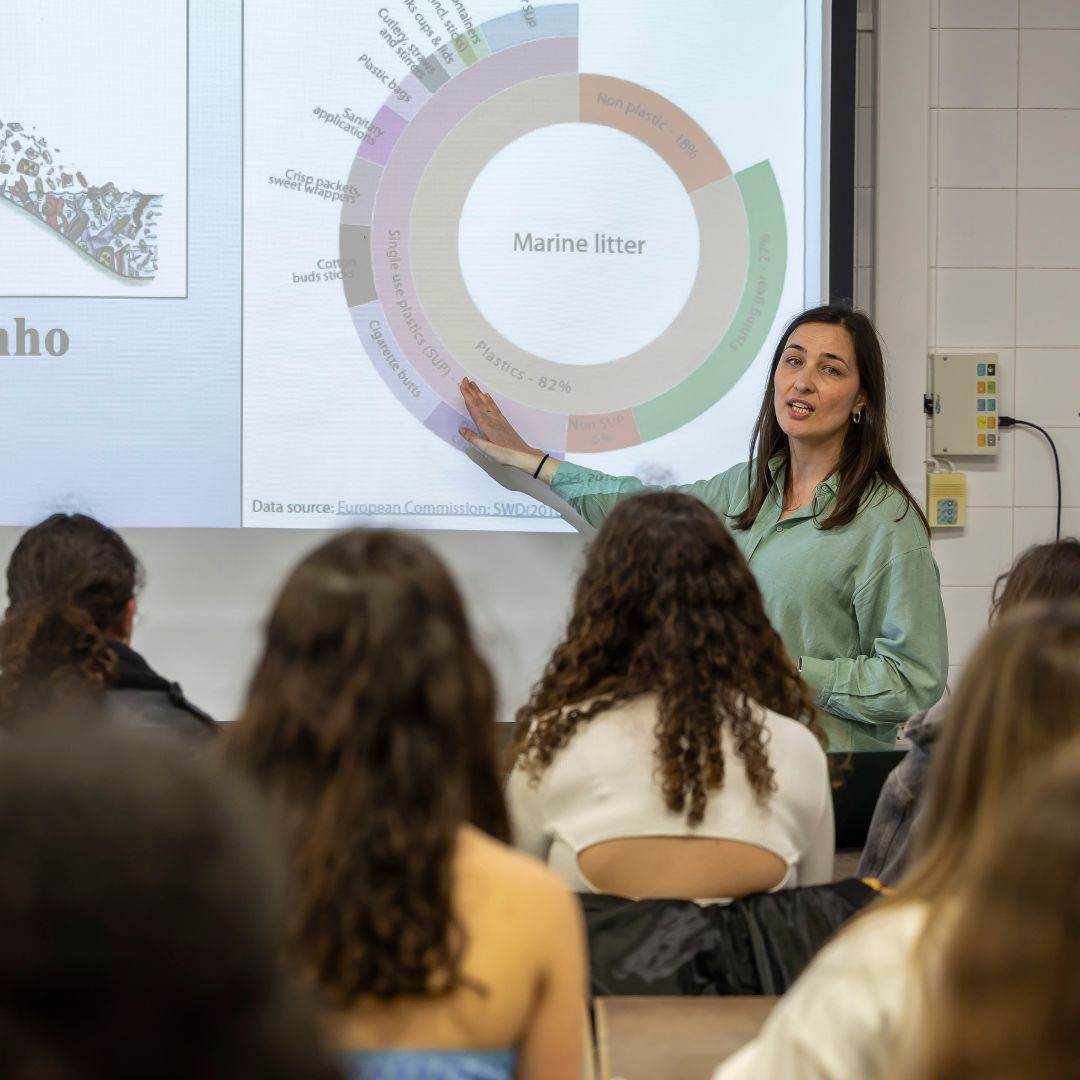MARE-NOVA welcomes students from Ibn Mucana School for a science day on the environment and water
On May 15, the MARE-NOVA regional research unit opened its doors to more than 50 8th and 9th grade students from the Ibn Mucana Elementary and Secondary School in Cascais. The visit took place as part of the Cientificamente Provável project, an initiative of the Ministry of Education, Science and Innovation, promoted by the School Libraries Network. 
Accompanied by their teachers and welcomed by a team of researchers from the Department of Environmental Sciences and Engineering - Rita Maurício, Carla Silva, José Gonçalves, João Pequeno, Vanessa Alves and Pedro Santos - the students embarked on an immersive experience that combined science, education and environmental citizenship.
The program began with an interactive introduction to the topic of water pollution, followed by a workshop dedicated to the problem of marine litter and microplastics. During this session, the young people explored practical ways of “deplasticizing the sea”, understanding the impacts of pollution on aquatic ecosystems and on human beings themselves.

The visit continued with a tour of NOVA FCT's laboratories, starting with a practical lesson on how water and wastewater treatment plants work. Between pipes, filters and experiments, the students were able to see in detail how contaminated water can be transformed into a usable resource.
One of the highlights of the day was the demonstration of a cold plasma reactor, an innovative wastewater treatment technology whose futuristic appearance aroused great enthusiasm among the visitors. The researchers explained how this system works and its revolutionary potential for combating water pollution.
To round off the visit, the students took part in a lively environmental quiz, testing their knowledge of sustainability, the circular economy and recycling. The healthy competition ended with prizes for everyone and a shared certainty: learning can be exciting, especially when combined with science in action.
At the end of the day, the feeling was unanimous - many were already asking when they could come back. As one of the researchers said: “NOVA FCT's doors are always open to the curiosity of the young. The future starts here.”
About the Cientificamente Provável project
This initiative aims to create partnerships between primary and secondary schools and higher education institutions, through the School Library Network. The Foundation for Science and Technology (FCT) invited MARE to join the program, reinforcing its commitment to science education, bringing students and researchers closer together, and promoting a culture of environmental and scientific literacy in the new generations.
Photographs by João Lima/NOVA FCT
Written by Patrícia Carvalho
